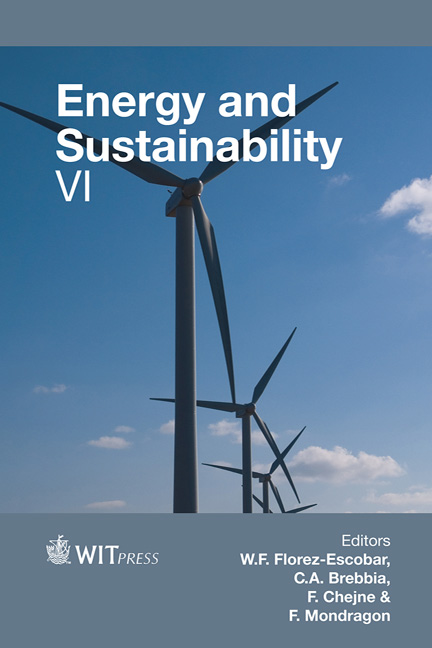Using Life Cycle Assessment To Compare The Environmental Performance Of Electricity Generation Technologies In Ecuador: Fuel Oil In Internal Combustion Engines Vs. Fuel Oil In Steam Power Plants
Price
Free (open access)
Transaction
Volume
195
Pages
9
Page Range
417 - 425
Published
2015
Size
256 kb
Paper DOI
10.2495/ESUS150351
Copyright
WIT Press
Author(s)
A. D. Ramirez, A. J. Boero, A. M. Melendres
Abstract
Ecuador currently has a balanced electricity generation mix between hydropower and thermal power. An important hydropower capacity expansion is expected in the near future. However, during peak demand, thermal power will always be required. Ecuador main fossil fuels used in electricity generation are fuel oil and natural gas. Fuel oil is used mainly in two types of electricity generation technologies: internal combustion engines and steam power plants.
Life cycle assessment (LCA) is a methodological framework used in academia and business to evaluate or compare the environmental performance of products and services. LCA can support decision making at different levels. LCA involves the compilation of environment and resource relevant inflows and outflows throughout the entire life cycle of a product or service. The life cycle of a product involves the extraction of raw materials, several stages of processing, production, use and, end-of-life.
LCA was used to compare the environmental performance of electricity derived from fuel oil in internal combustion engine power plants vs. electricity derived from fuel oil in steam power plants in Ecuador. Life cycle impact assessment results indicate that the electricity generated in internal combustion engine power plants has a lower environmental burden for most impact categories considered.
Keywords
LCA, climate change, thermal, fossil fuels





